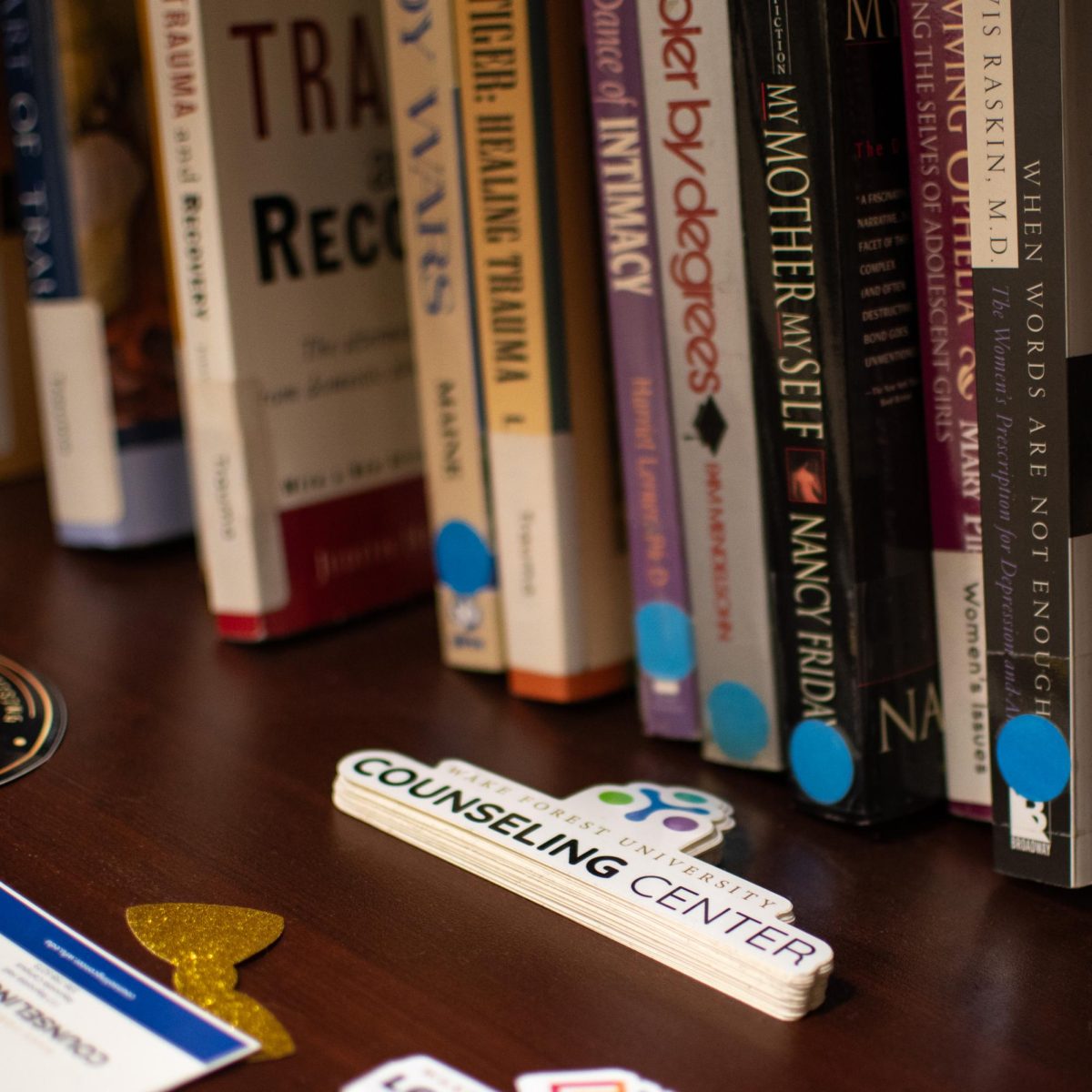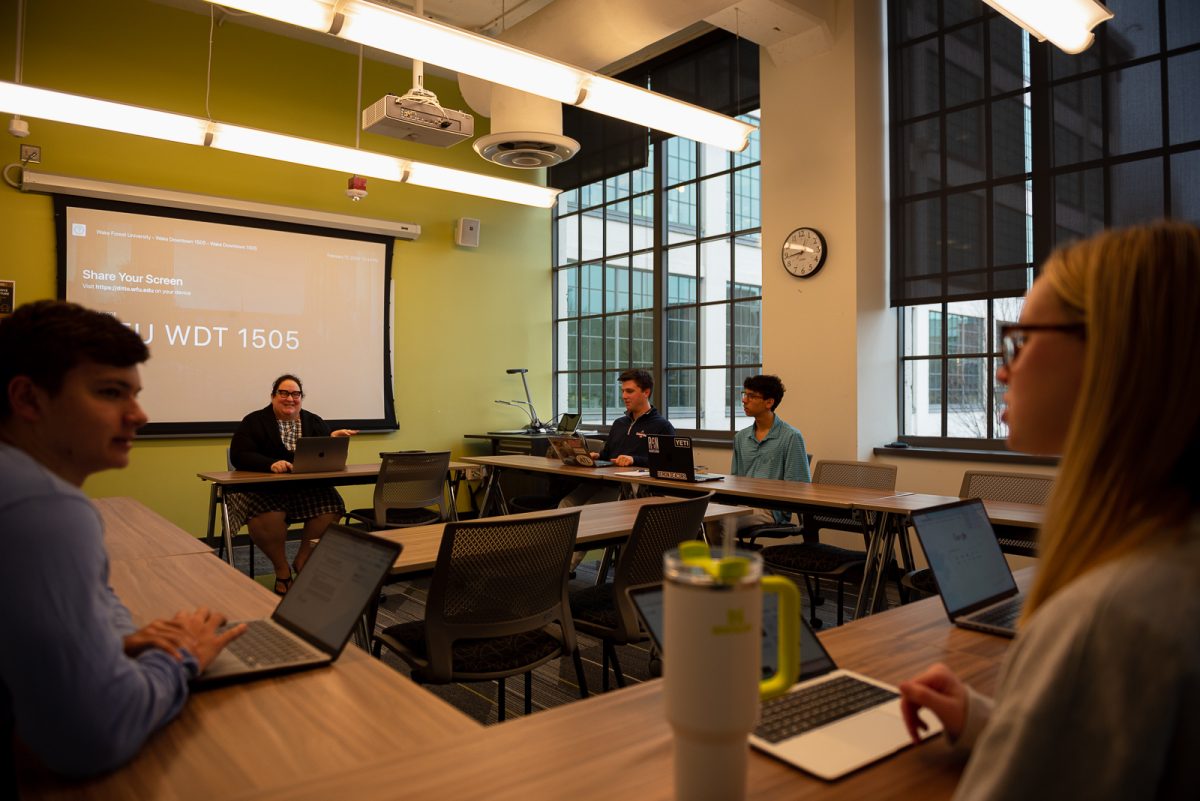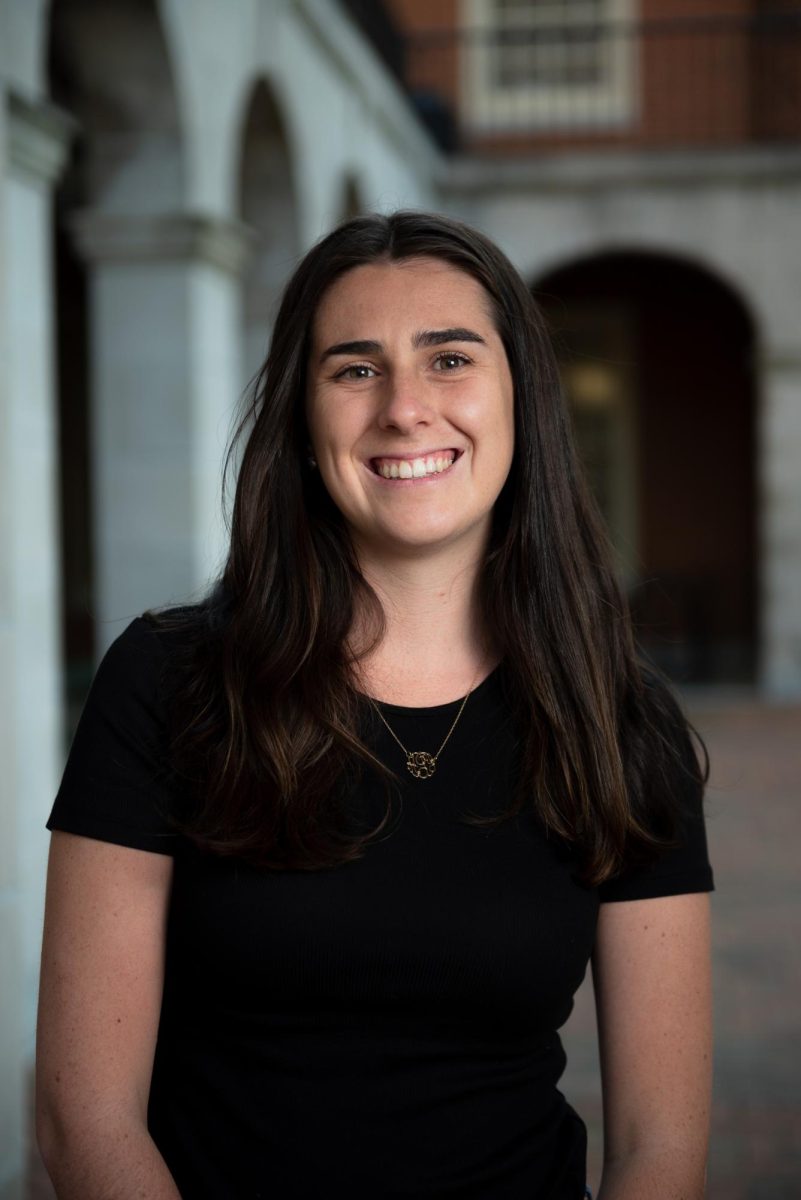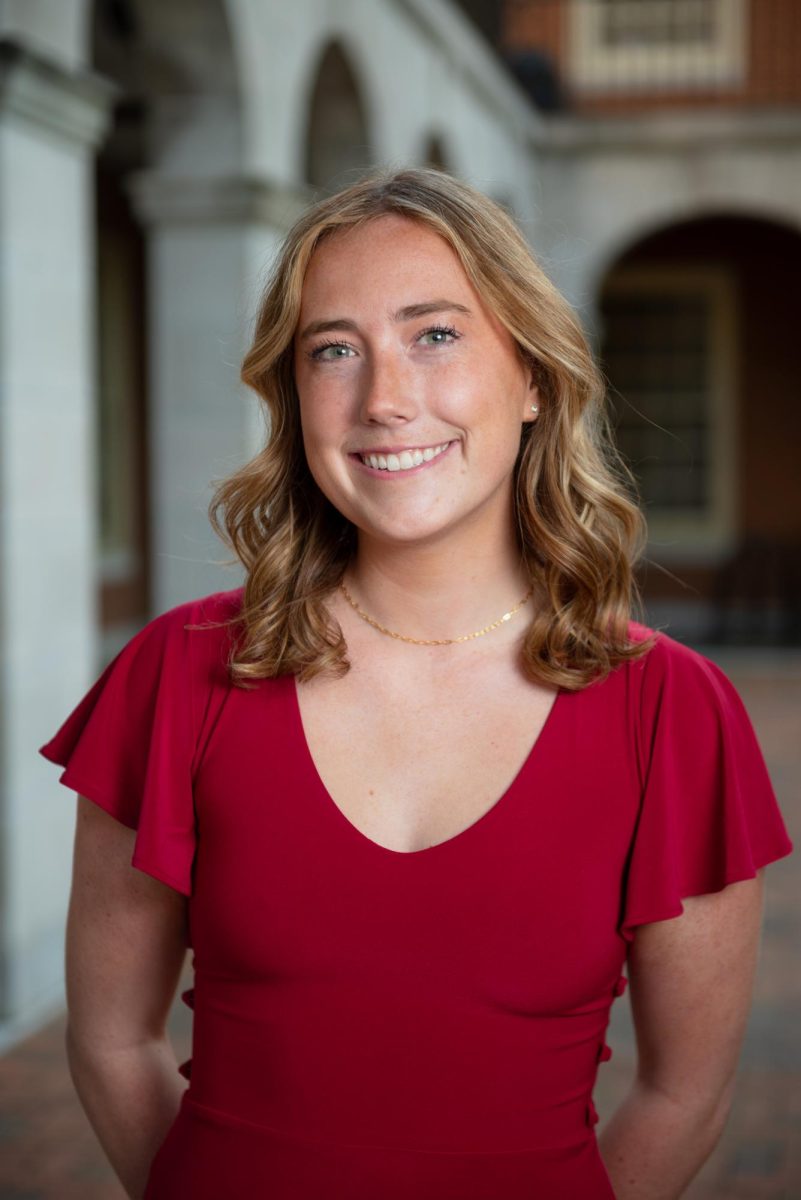When students with a passion for mental health advocacy launched an IfYoureReadingThis chapter at Wake Forest University, the intent was to make a small campus feel smaller, said the organization’s co-President Georgia Meyer.
“I think people on campus join clubs and organizations to find a sense of belonging, to find like-minded people,” Meyer said. “But IfYoureReadingThis’s letters are meant to unify anybody and everybody, regardless of background, regardless of interests.”
Student letters are the heart of IfYoureReadingThis. The student organization’s website destigmatizes mental health by offering a collection of student-authored letters that detail personal experiences with mental health battles. The students pen their letters to anyone who may need to see a familiar mental health challenge in a peer who is unashamed to discuss their journey.
The organization — which has chapters at 21 schools — stands alongside several mental health resources at WFU. On top of existing services, such as the University Counseling Center and the Office of Wellbeing, the administration launched its “We Are Wake” advocacy campaign last semester.
These top-down resources offer an integrative approach to reaching students who may need help with their mental health. But IfYoureReadingThis can provide help from a student perspective.
WFU faculty and staff understand that the student perspective of mental health matters. Warrenetta Mann, assistant vice president for health and wellbeing, oversees the University Counseling Center, Safe Office, Student Health Service and Office of Wellbeing.
“My philosophy about college is that this is your Wake Forest experience,” Mann said. “[Students] create what Wake Forest is. I can lend my experience and expertise, but I think students have the best idea of what their mental wellbeing looks like and what they need.”
Mann said with clinical resources in place, the goal of building awareness is to guide students facing mental health problems to the proper place to seek health. That means identifying to whom students will first express their challenges.
“We know that the data shows that [students] are going to probably reach out to a friend or a faculty member before coming to a clinical resource,” Mann said.
IfYoureReadingThis intends to increase that probability of reaching out. According to the organization’s website, the letters are meant to promote vulnerability among students in one space of collective responsibility.
Dean of Students and Associate Vice President for Campus Life Matt Clifford works directly with resident advisers. He said that, as students, they provide the service of pointing residents toward mental health resources.
“I often call resident advisers the great connectors,” Clifford said. “They’re there to notice if a student is struggling and help connect them to the resources that might be useful.”
For Clifford, his great connectors are also sharing the responsibility of breaking down barriers between students when it comes to discussing mental health.
“These are fellow students who they can trust and be real with in a different way than they might feel they can be with parents or faculty members,” Clifford said.
Meyer and her co-president, Prarthna Batra, believe their organization’s letters go beyond their ability to resonate with students. There’s also the matter of accessibility for college students.
“Students may not have time to go to a university office the exact day they have a breakdown,” Batra said. “You can’t plan those things. But you can always read a letter, and reading about people your age who are in the same classes and same clubs offers relatability.”
Letters can be submitted to the website, with an option for anonymity, by emailing either Batra at batrp22@wfu.edu or Meyer at meyega22@wfu.edu. They said every letter adds something new, and each could be a new student perspective for someone to find and identify with.
“Even if just one person reads one of the letters, that’s still making an impact because they’re inspired for the day,” Meyer said. “They can bring the letter up to people they talk to or just be more open to talking about mental health. Then that makes another person feel comfortable, and it keeps going and going.”
This article is part of the Mental Health Collaborative, a project completed by nine North Carolina college newsroom to cover mental health issues in their communities. To read more stories about mental health, explore the interactive project developed specifically for this collaborative.











